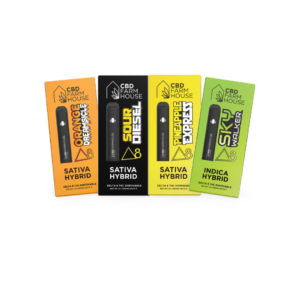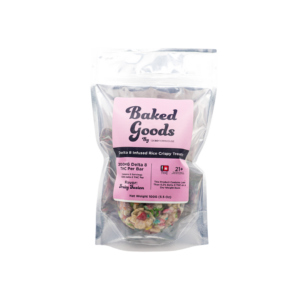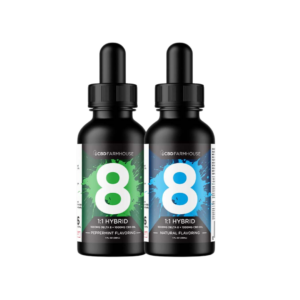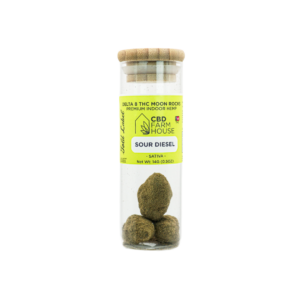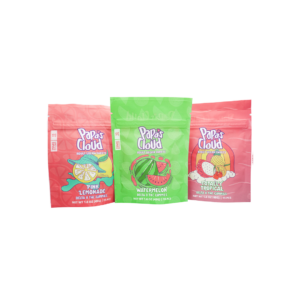Delta 8 THC is one of the most popular derivatives of the hemp plant, playing second fiddle only to Organic CBD Products. Most commonly used for its mild psychoactive properties, Delta 8 THC is actually an extremely useful cannabinoid that offers a wide array of desirable effects through its interaction with cannabinoid receptors throughout the body that stimulate the regulation of important physiological processes. And despite being able to get a person high, it’s federally legal, and does not require a prescription like medical marijuana.
Being a hemp-derived cannabinoid, delta 8 THC is classified as a nontoxic substance, and this helps people feel comfortable incorporating it into their lifestyles. But, there’s one thing that needs to be considered before using Delta 8 Hemp.which is whether or not it can interact with prescription medications.
Delta 8 THC and the CYP3A4 Enzyme
The reason why so many are concerned about a potential interaction between delta 8 hemp products and certain prescription drugs is because of thed cannabinoid’s relationship to a metabolite called CYP3A4. This is an enzyme that plays an instrumental role in metabolizing a wide range of commonly prescribed medications – about 50% of the drugs on the market – including, but not limited to:
- Benzodiazepines (Xanax, Valium, Klonopin, etc.)
- Opioids (Vicodin, Codeine, Oxycontin, etc.)
- NSAIDs (Diclofenac, Ocufen, Celebrex, etc.)
- Corticosteroids (Cortisone, Prednisone, etc.)
Delta 8 THC, along with many cannabinoids found in natural CBD products, acts as a CYP3A4 inhibitor. What this means is that it suppresses the body’s level of CYP3A4, thus resulting in a potential interaction. If these medications require a certain concentration of CYP3A4 in the body, and delta 8 acts as an inhibitor, then these drugs cannot properly metabolize.
The issue is that if these drugs are unable to metabolize, they end up getting stored in the body until CYP3A4 levels return to normal. If a drug is being taken on a daily basis, each dosage therefore enables an accumulation of the drug in the bloodstream. This is dangerous as it can lead to an overdose, as each dosage adds to the existing concentration that has left to be metabolized.
Delta 8 THC acting as a CYP3A4 inhibitor can therefore cause certain medications to accumulate in toxic concentrations in the body, which is the basis of the potential for an interaction. It’s important to note that delta 8 hemp and other Natural CBD Products are not the only inhibitors of CYP3A4. Others include:
- Grapefruit
- St. John’s Wort
- Black pepper (note that this only applies to medicinal dosages of black pepper – the amount commonly used to season food is too low to have an effect on CYP3A4)
- Goldenseal
You may have noticed that many prescription medication bottles have a disclaimer that discourages the user from consuming grapefruit. As a rule of thumb, any drug that comes with this disclaimer can also negatively interact with delta 8 THC.
The Likelihood of a Negative Interaction
It’s worth noting that Drugs.com, an official database that measures the risks of various drug interactions, lists cannabis and Delta 8 THC as having only a moderately negative interaction with commonly prescribed medications. In short, no cannabis derivatives are associated with causing severe complications when taken with prescription drugs. Now, severe interactions can never be 100% ruled out only because biological science is complex, and everyone’s body is unique. However, bear in mind that there is a large overlap between cannabis users and those who take prescription medications. This implies that many people take cannabinoids and prescription drugs together without suffering serious consequences.
Still, that doesn’t mean that it’s recommended to do so. And, there are many factors that ultimately influence how likely you are to suffer the consequences of an interaction between delta 8 and a medication.
Dosage
The higher the dosage of each substance, the more likely there is for an interaction. Higher doses of medications require more CYP3A4 to break down in the body, and higher doses of delta 8 suppress CYP3A4 more effectively, depriving medications of the ability to metabolize.
Frequency of Use
How frequently you consume either substance plays a role as well. Being a once-a-week delta 8 user will not have as strong of an inhibitory effect on CYP3A4 as consuming the cannabinoid frequently throughout the day. Similarly, taking a prescription medication only occasionally as needed, rather than daily, will require less CYP3A4 to metabolize the medication.
Timing
Some drugs metabolize more quickly than others. An example would be benzodiazepines. Xanax has a much shorter half-life than Valium, and therefore metabolizes more quickly. A single dose can leave the body within 11 hours of administration, which means that if you take delta-8 11 hours after consuming Xanax, delta8’s inhibitory effect may not matter since the Xanax has already been metabolized. Keep in mind, however, that frequency of use does come into play here. If you are someone who takes delta 8 hemp products daily, higher concentrations may be present in the body long after your last dose of the cannabinoid, therefore still influencing CYP3A4 levels after the effects have long worn off.
Your Metabolism
Each person’s metabolism is different. Some people simply metabolize both delta 8 and prescription medications more quickly than others, and some people naturally produce higher levels of CYP3A4 than others.
Other CYP3A4 Inhibitors
If you are taking delta 8 hemp products along with another CYP3A4 inhibitor, such as drinking grapefruit juice each morning, this will have a stronger impact on how medications can metabolize.
Having a Conversation with Your Doctor
Ultimately, the only way to know that you can safely take delta 8 THC and a particular prescription medication is to have a conversation with your doctor. Make sure they are fully aware of the amount of delta 8 THC you consume, as well as the strengths of any prescription medications that you are on. Only your doctor is authorized to provide medical advice, and only they can make recommendations that are personalized.
Delta 8 THC and Medications: Better Safe Than Sorry
At the end of the day, it’s good to adopt a “better safe than sorry” approach when it comes to mixing delta 8 hemp products with prescription drugs. We encourage you to speak to your doctor about the risk of a negative interaction between delta 8 and a drug that you have been prescribed, and to also do your own research on the effects that the cannabinoid may have on your prescription in particular. Overall, if you are taking a drug that requires CYP3A4, we encourage you to avoid CBD Farmhouse products like delta 8 THC. And keep in mind that many cannabinoids besides delta 8 have been shown to inhibit this enzyme, including CBD and delta 9 THC.


